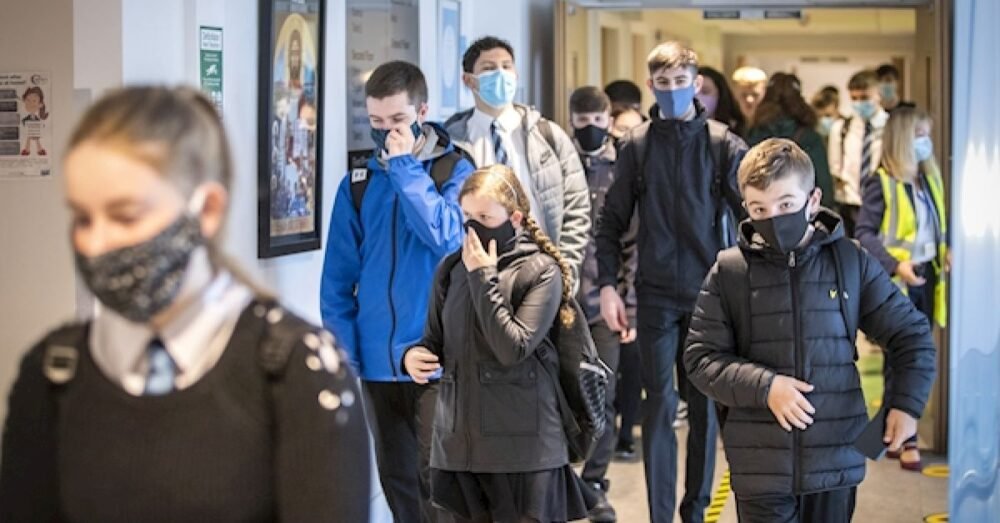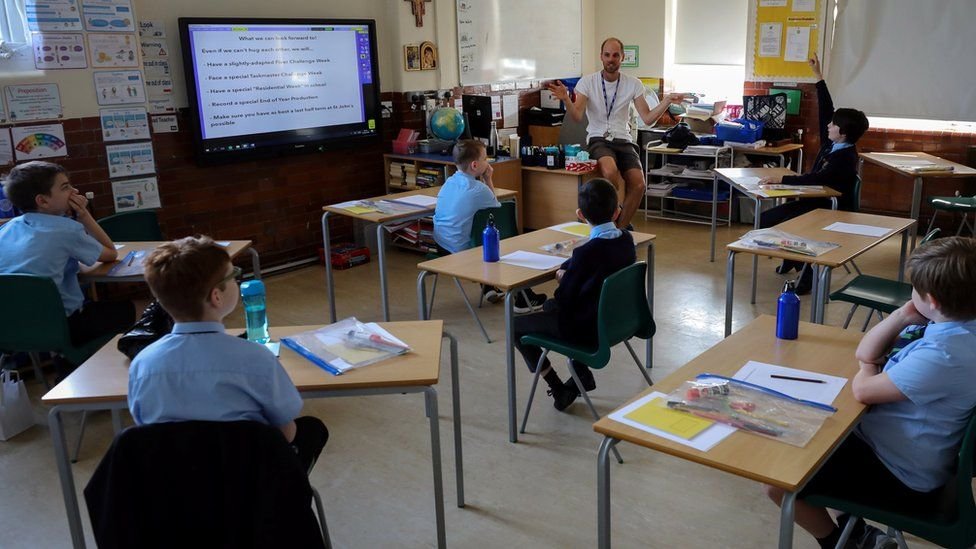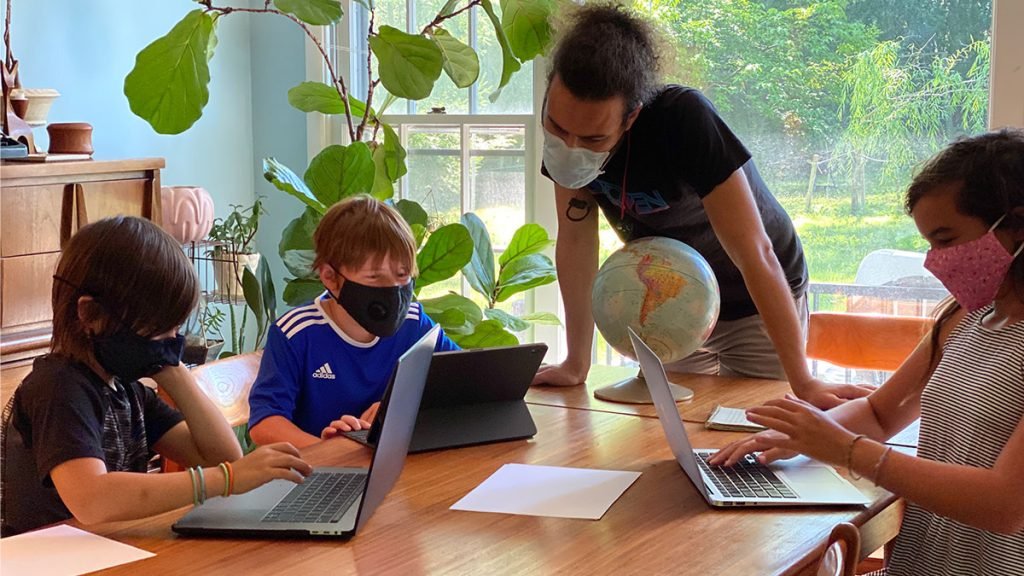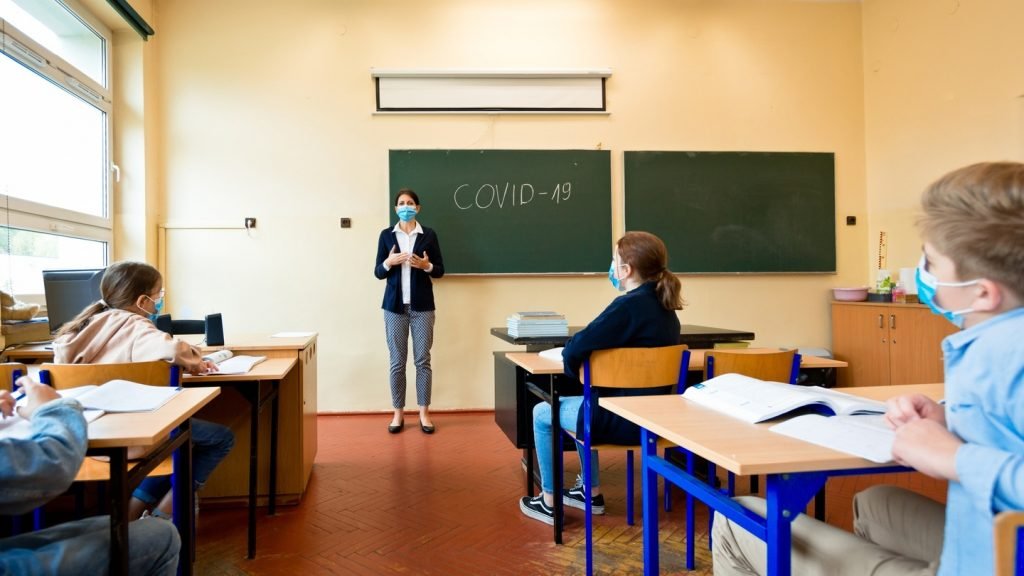Safeguarding at School: How Does Ireland’s COVID Response Compare?

Since the 7th of December, the Irish government, acting on the advice of NPHET, has reintroduced several restrictions on the country’s bar and hospitality industry in response to a COVID surge. Nightclubs that had only been reopened as recently as the 22nd of October have been ordered to shut their doors again, and bars and restaurants have had to return to only providing table service, with a maximum of six adults per table.
Given the uncertainty this sector has faced during the course of the pandemic, these new measures have come as a blow, as they promise to curtail what was hoped would be a busy Christmas season. Instead it seems unlikely that any financial losses will be made back.
The general discontent with the new state of things has only been made worse by the conditions in the country’s schools. Given that 5 to 12 year olds are now the age group accounting for the highest infection rate (14% of all cases), the question has been raised as to why bars, clubs, and restaurants have been subject to new rules instead of the educational institutes.
Currently, all Irish schoolchildren are back in the classroom full-time, and those in 3rd class and up are required to wear face masks when at their desks. After public pressure, antigen tests have been made available in primary schools since the 29th of November, and they have been made free to any child who is a close contact. However, concerns have been raised as to whether or not schools are being ventilated properly, with expert groups and the Department of Health disagreeing on the best course of action.

Not disrupting the education of the nation’s youth appears to be high on the government’s list of priorities, but is it worth the strong transmission risk? Compared to other countries, how reliable are the measures that have been put in place?
United Kingdom
In the UK, measures differ across its four countries, with England being the most relaxed. English secondary school students have been advised to resume mask wearing, but it has not been made mandatory. By contrast, Wales, Scotland, and Northern Ireland have all enforced mask wearing for secondary school pupils and staff in primary schools. In addition, the English, Scottish, and Welsh governments have all provided funding to improve ventilation quality.
France
From the 15th of November, mask wearing has been made mandatory once more for French primary school children. This rule had previously been discarded in late September, but a surge in infections at the end of October prompted the government to place the country in a Level 2 alert. Children from the ages of 11 are provided with two free covid tests a week. As it stands, all schools are currently learning in person, although there have been concerns that the rapid back-and-forth change of measures will confuse and discourage parents

Germany
Germany is placing a high-value on the ability of the country’s children to continue with normal education, with the parliament passing a new law stating that widespread school closures will no longer be permitted. However, out of the 10 million German students, 87,000 are in quarantine, and around 45,500 are registered as infected.
Poland
Owing to a surge in the infection rate of COVID-19, the Polish government announced this week that schools will be closing and there will be a return to remote learning from the 20th of December to the 9th of January. This move comes after concerns that the Omicron variant will spread through younger age groups rapidly. All Polish teachers will be required to be vaccinated by the 1st of March 2022.
Denmark
Denmark is another country shutting the doors of its schools across the country, adding extra days onto the regular Christmas break in the hope of curbing a recent surge in cases. Nightclubs have also been closed, as in Ireland. This is the first serious re-introduction of covid restrictions in educational institutions since the 11th of June, and mask-wearing will also be mandatory after a relaxation in August.

Italy
Face masks are currently obligatory for Italian school children, and mandatory vaccines are being considered for children as young as five years old. Italy was one of the worst affected countries in the first wave of the virus. Since reopening, its schools have operated along the same system, with staggered arrival times, social distancing, and reduced capacity on school transport. However, there are some concerns, as vaccine-sceptical parents have been pulling their children out of school.
Do you think Ireland’s school health measures are up to the task, or should we be taking similar steps to European countries shutting the doors on in-person education? Or is the Irish system working for the country’s pupils?